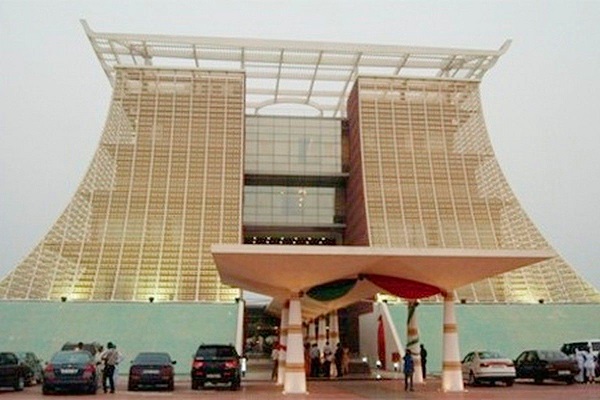
Can we cut Office of President’s budget?- A Journalists for Business Advocacy consensus
At a meeting of the Journalists for Business Advocacy (JBA) in Accra recently, members expressed worry about the country’s fiscal position, which has culminated in the downgrade of its sovereign credit ratings by two of the three international ratings agencies and consequent loss of access to debt financing on the international capital markets.
At the local level a debate has ensued as to whether Ghana should cut its fiscal deficit through expenditure cut backs, or through efforts to increase tax revenues, or a combination of the two.
JBA, accepts the government’s expansionary economic philosophy which is premised on expansion of public revenues, which has the potential to increase economic activity and consequently wealth generation, but also agrees that there is ample room for reductions in non-essential public expenditure, that would not significantly dampen economic value addition in the country.
Budgetary allocations
It is instructive that the 20 per cent across board cut in the 2022 budgetary allocations announced by the Finance Minister in the wake of the downgrade of the country’s credit ratings has not been accompanied by a cut in the growth projections for the current fiscal year.
Unfortunately however, suggestions towards further cuts are being widely interpreted as politically motivated, in part because they are sometimes accompanied by scathing — and indeed partly politically motivated — criticism of government’s economic performance in general.
While JBA certainly does not share most of the sentiments being expressed in this regard, our research makes it imperative that we point out one particular area where significant expenditure cuts can and indeed should be made.
This is with regard to budgetary allocations to and subsequent spending by the Presidency.
For the 2022 fiscal year, some GH¢ 3.2 billion has been allocated to the Presidency. This translates to about almost $500 million. Compare this with the 40.2 billion naira budgetary allocation for 2022 in neighbouring Nigeria which translates to about $99.6 million.
GDP comparison
Curiously, Nigeria’s allocation to its presidency is barely one-fifth that of Ghana despite Nigeria’s Gross Domestic Product (GDP) at $ 432.3 billion being nearly six times Ghana’s GDP of $75.49 billion.
Indeed the budgetary allocation to Ghana’s Presidency is 0.67 per cent of the country’s GDP compared with Nigeria’s ratio of just 0.023 per cent.
The argument can be made that because Nigeria operates a federal system while Ghana operates a unitary system, Ghana’s presidency is bound to be more expensive than that of Nigeria.
However some hold the view that the difference is far too much especially in the light of each country’s fiscal situation; Nigeria’s public debt to GDP ratio stands at 36.88 per cent, which is less than half of Ghana’s ratio of 75.4 per cent as at the end of November 2021.
Vivid illustration
Ghana’s excessive budgetary allocation to its presidency is similarly illustrated vividly by another form of comparison.
Ghana’s GH¢3.2 billion allocation to its presidency translates to about 2.2 per cent of the total central government budget of GH¢135.6 billion for 2022 (since the 20 per cent cut is across the board it does not change this ratio at all); meanwhile Nigeria’s corresponding ratio of its 40.2 billion allocation to the presidency is just 0.235 per cent of its 17.1 trillion naira federal budget.
In effect therefore Ghana’s presidency allocation as a proportion of the total budgeted expenditure is 10 times that of Nigeria despite the latter’s need for fiscal consolidation, deriving from its public debt to GDP ratio being less than half of Ghana’s need.
Indeed, Nigeria’s much lower proportional allocation to its presidency is not an aberration. Indeed, in general, across Africa, budgetary allocations to the office of an executive president tend to be below one per cent.
For instance, South Africa, the second largest economy on the continent behind Nigeria, allocated two billion Rand to its office of the president for its 2021/22 fiscal year, which amounts to just 0.33 per cent of its total 655.6 billion Rand budget. It is instructive that this ratio is much closer to Nigeria’s than it is to Ghana’s.
It is instructive that the allocation to the office of the president in Ghana’s national budget has continued to rise much faster than total budgeted expenditures every year over the past eight years; and even more worrying is the fact that while government has prudently slashed expenditures each year in line with revenue shortfalls below budgetary projections, the actual spending outcomes for the office of the president have not been affected by such spending cut backs.
Cause for concern
All this gives us cause for concern even as it offers ammunition to government’s political opposition who point to alleged wasteful spending by the office of the President — such as the leasing of a luxury aircraft for presidential travels at inordinate cost — as a major cause of Ghana’s ongoing fiscal conundrum.
While government itself may have a point in arguing that such expenditure brings benefits to the country, the fact that Ghana’s fiscal position is deteriorating to the level that it is no longer seen as credit worthy by the international capital markets — unless an inordinate risk premium is paid — suggests that the costs are now exceeding the benefits.
Under the dire circumstances JBA is therefore strongly recommending that government looks closely at ways to reduce expenditure by the Presidency.
Beyond the tangible savings it would generate, it would also serve to encourage all Ghanaians to tighten their belt in the knowledge that the President and his staff are doing the same.
